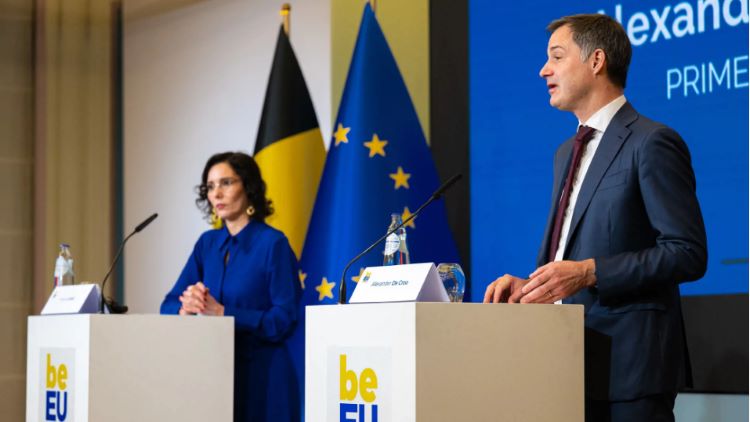Eduardo González
From today until July 1, Belgium will hold the Presidency of the Council of the European Union, which will replace that held by Spain in the second half of 2023 and will face the challenge of the momentous and unpredictable European elections next June.
Belgium occupies the second position of the current Trio of Presidencies, which started with Spain and will conclude, as of July 2024, with Hungary. Each Trio of Presidencies lasts 18 months and, during this period, the three Member States develop common agendas and priorities. Then, each country gives its own interpretation on the matter during its Presidency, but always on the basis of the common program. It so happens that the Trio mechanism was officially implemented in 2010 through the Treaty of Lisbon and that the first three countries to form a Presidency Trio were, precisely, Spain, Belgium and Hungary, the same as on this occasion.
The common program of the current Trio of Presidencies focuses on challenges such as the Russian war of aggression against Ukraine, the need to strengthen European resilience in the face of growing global uncertainty and strategic autonomy. All of this requires strengthening the EU’s global competitiveness through a strong industrial base compatible with the ecological and digital transition and innovation. Other challenges of the Trio are the reinforcement of multilateralism and security in all its dimensions, the development of an ambitious and balanced trade policy and the development of the EU’s capacity in security and defense.
By working together, shared priorities can be developed over an 18-month period and are less subject to the semi-annual change of Presidency. At the same time, each Member State is free to put its own stamp on the Council as president. In this case, the six priorities of the Belgian Presidency are the defense of the rule of law, democracy and unity; strengthening European competitiveness, defending a fair ecological transition, reinforcing the social and health agenda, protecting people and borders and promoting a global Europe.
The program and priorities of the Belgian Presidency were presented on December 8 by the Prime Minister, Alexander De Croo, and the Minister of Foreign Affairs, Hadja Lahbib, during a press conference in Brussels. “No time to lose. The Belgian Presidency must rise to the challenge. “This is what citizens expect and that is what we are going to do,” said the prime minister. “Belgium wants this Presidency to be a collective success for Belgium, Europe, its citizens and its place in the world,” added Hadja Lahbib, whose Department has been preparing for this responsibility for several years.
To carry out its objectives, they explained, the Belgian Presidency will follow three main guidelines. The first is the protection of the population, which implies guaranteeing the security and well-being of European citizens by securing borders, protecting democracy and the rule of law, strengthening the social and health agenda and maintaining European unity and support for Ukraine. The second guideline is the strengthening of the economy. “We have an urgent need to increase the EU’s competitiveness on a global scale, while facing the challenge of a green, digital and fair economic transition,” said De Croo. The third guideline is preparation “for the future”, including the reform of the EU, its policies, its budgets and its institutions with a view to the next possible enlargement.
Another of the great challenges of the Belgian Presidency is facing the results of the European elections next June. This means that the Spanish Presidency was the last complete one before the next European legislative cycle and that in the first half of 2024 the current term of the European Parliament will conclude and a period of paralysis of parliamentary activity will begin in which, normally, no nothing important is approved. Furthermore, one of the great ghosts that the Belgian semester will face is the possible increase in the European Parliament of far-right forces openly opposed to the European project.






